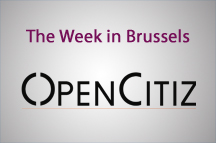 France
France
Thursday night, Socialist President Francois Hollande announced he will not run again in the 2017 presidential elections. For the first time in the history of France’s 5th republic, an outgoing president decides not to run for a second term. Hollande’s decision was welcomed by his fellow Socialists; Prime Minister Manuel Valls is now expected to declare his candidacy and run in the primary organised in January 2017. The main reason for Hollande’s decision is that his historically low popularity (single digits) could risk leaving the space for extremism. Nevertheless, France’s left is as divided as ever. At least eight socialists will oppose each other in the primary, and the other left parties such as EELV, PRG, LO and NPA are running directly in the presidential elections. Finally, Hollande’s announcement plays into the hands of the right-wing parties (Republicans and National Front) as they will capitalise on what they will portray as an acknowledgement of failure.
Last weekend, François Fillon was elected to become the main right-wing party’s candidate. For the first time, the Republican party (ex-UMP) held a primary in order to determine who would be its presidential candidate. For months it had been assumed the run-off would oppose Alain Juppé, mayor of Bordeaux and ex-prime minister, and Nicolas Sarkozy, ex-president. But France’s right-wing electorate mobilised to vote for Fillon, who was prime minister under Sarkozy and is advocating a ‘liberal choc’ (economic liberalism) and social conservatism. Fillon benefitted from a powerful political momentum: 1. The preference for an honest president and deep reforms, 2. An extremely bad track-record of current socialist President Francois Hollande which highlights the need for reforms and 3. A generalised ras-le-bol (having had enough) of Sarkozy as well as strategic mistakes by Juppé. The Republican candidate’s programme contains numerous measures which are crucial to improve France’s competitiveness: reduction of labour costs, reform of the 35h working-week, lower corporate taxes and reduction of public spending which is the second highest in the OECD. He advocates a ‘Europe of nations’ and wants an ‘efficient and realist EU’.

Italy
This coming Sunday, Italians will go to the polls to vote in a referendum about constitutional reform. Prime Minister Matteo Renzi called the popular vote in order to approve constitutional changes aimed at making future Italian governments more stable and efficient. The latest polls suggest a NO vote, which would raise crucial questions about the Prime Minister’s future and the impact on Italian banks. But the last official polls were published two weeks before the referendum and the number of undecided voters remains very high.
Renzi made the mistake of tying his political future as a prime minister to the vote in a move to try and convince the undecided. Instead of convincing, he personalised the vote and even though he backtracked on his announcement, he will likely be forced to quit his position should he lose the vote. He would probably stay in place as leader of his centre-left Democratic Party (PD) in parliament. It would be difficult to call new elections given that partial constitutional reform would leave the country with two different voting systems for the upper and lower houses. More likely would be a technocratic government in order to push further electoral reform. This would be nothing new for the Italians as Italy had two technocratic governments since 2011. A No vote would lead to short-term instability, at least until a new government is in place, and will make it difficult for banks with bad loans to increase their capital. Some argue a No vote could have long-term positive effects as it would lead to a deeper electoral law reform.
Austria
Austria will do a re-run of its presidential elections this weekend following the Constitutional Court’s decision to annul Green politician Alexander Van der Bellen’s narrow victory against far-right candidate Norbert Hofer in May of this year. Polls show that the election is too close to call. A potential election of the first far-right Head of State in the EU would have important symbolic consequences and potentially even practical ones given that Hofer has said he will use the president’s powers proactively. His powers include appointment and dismissal of the government as well as dissolving the National Council (lower house of the parliament) and state parliaments.














